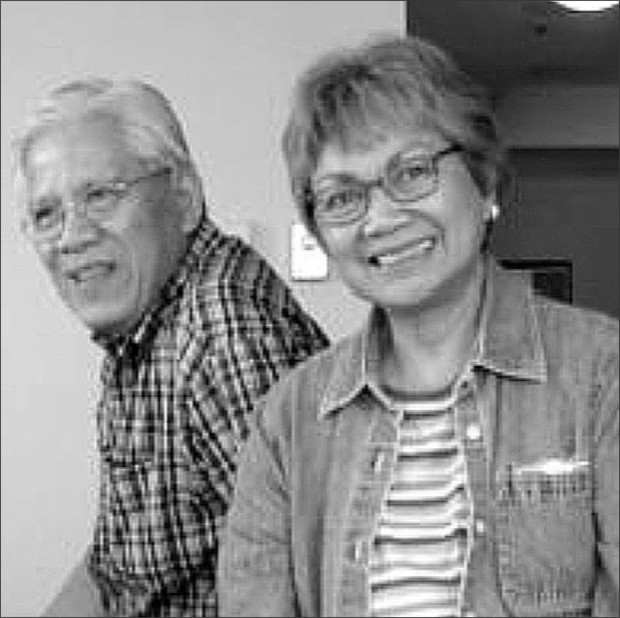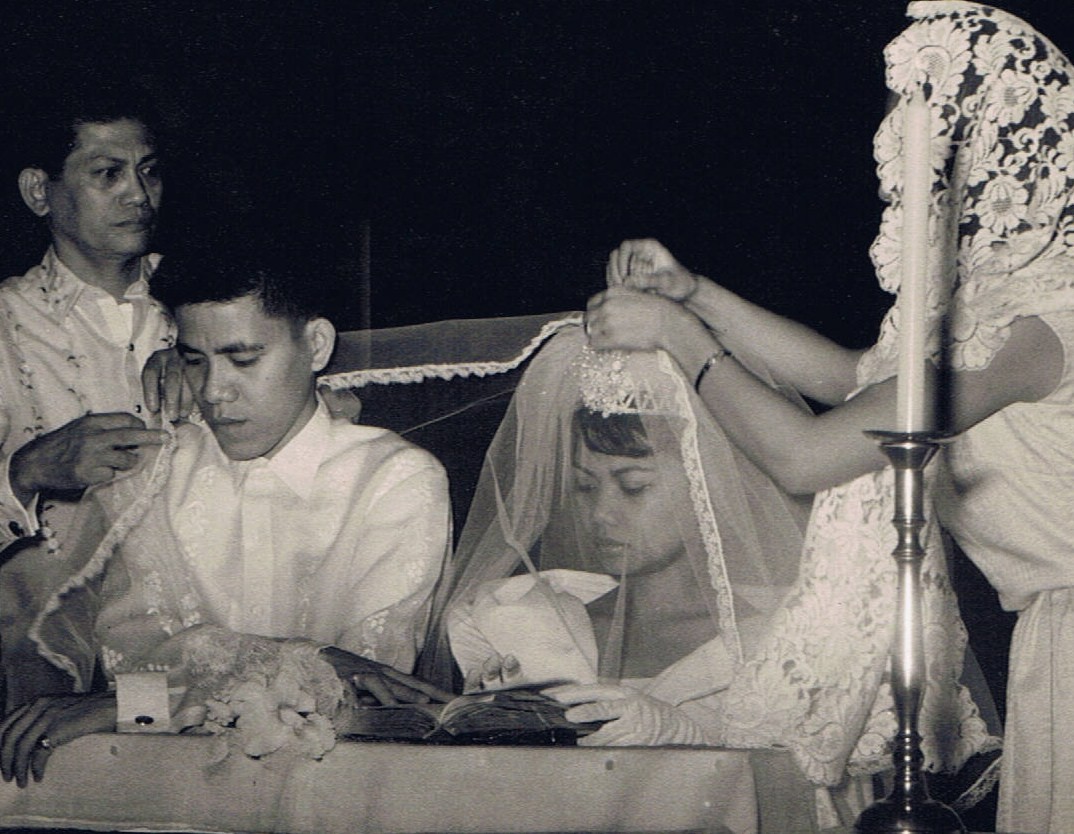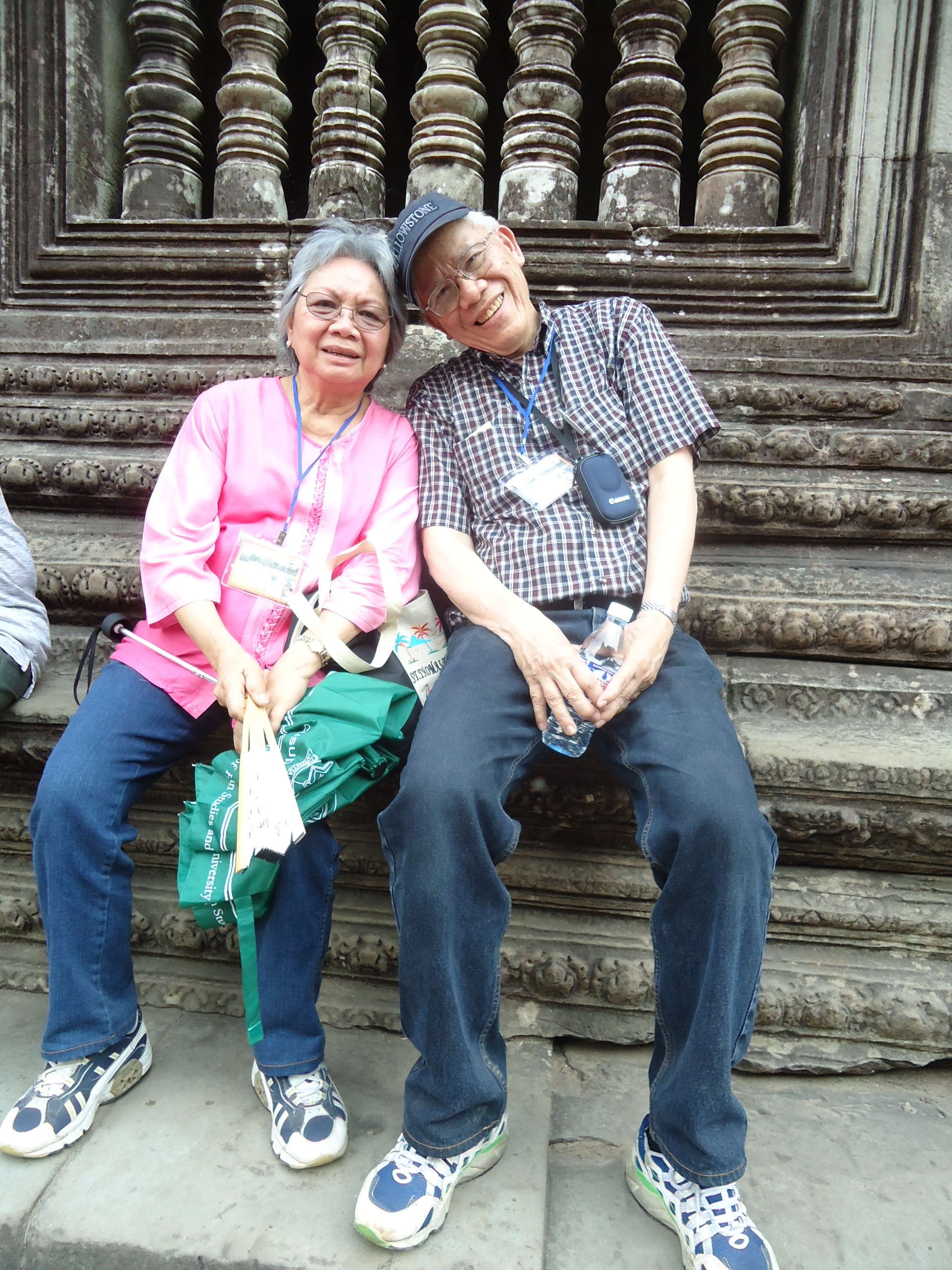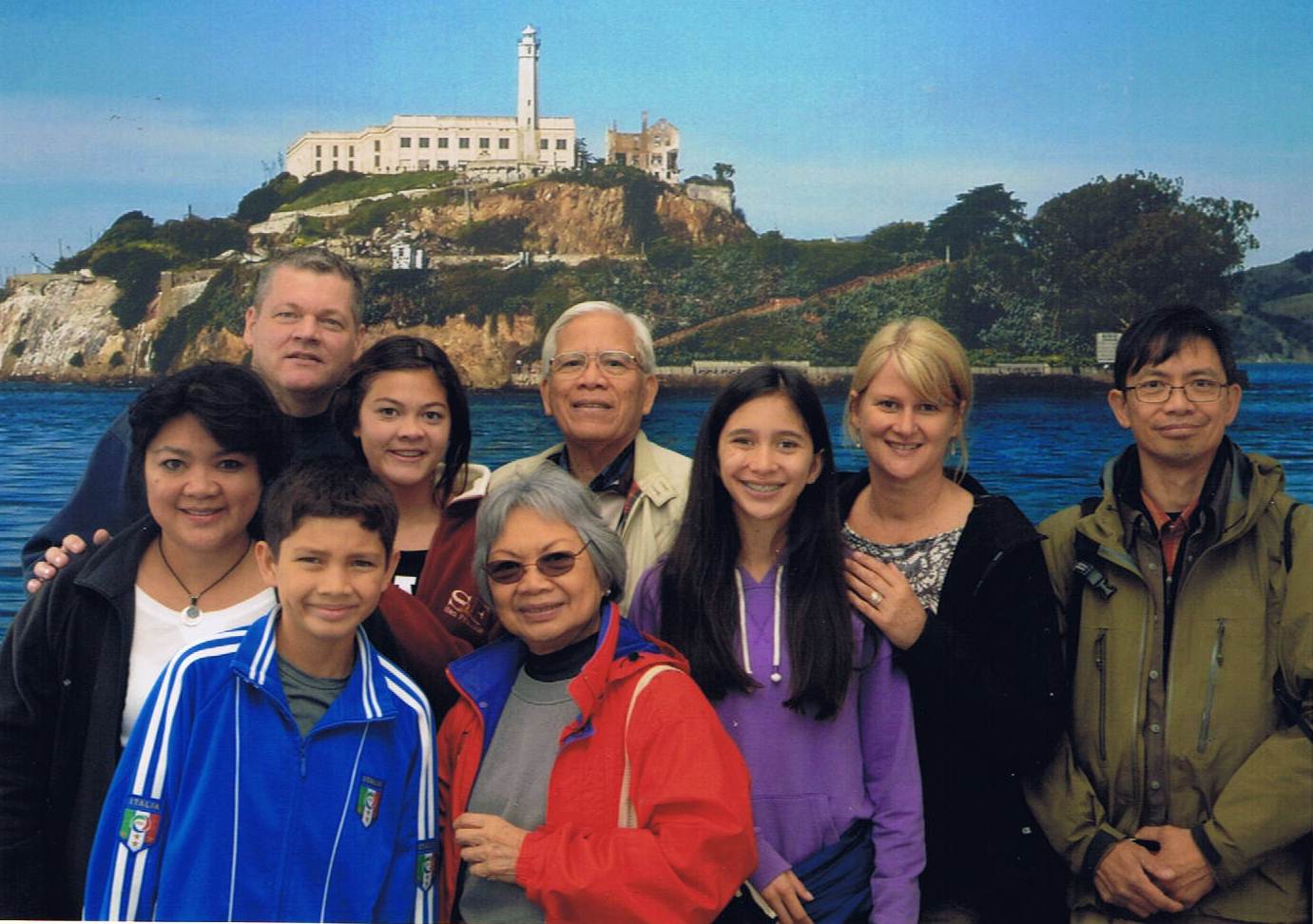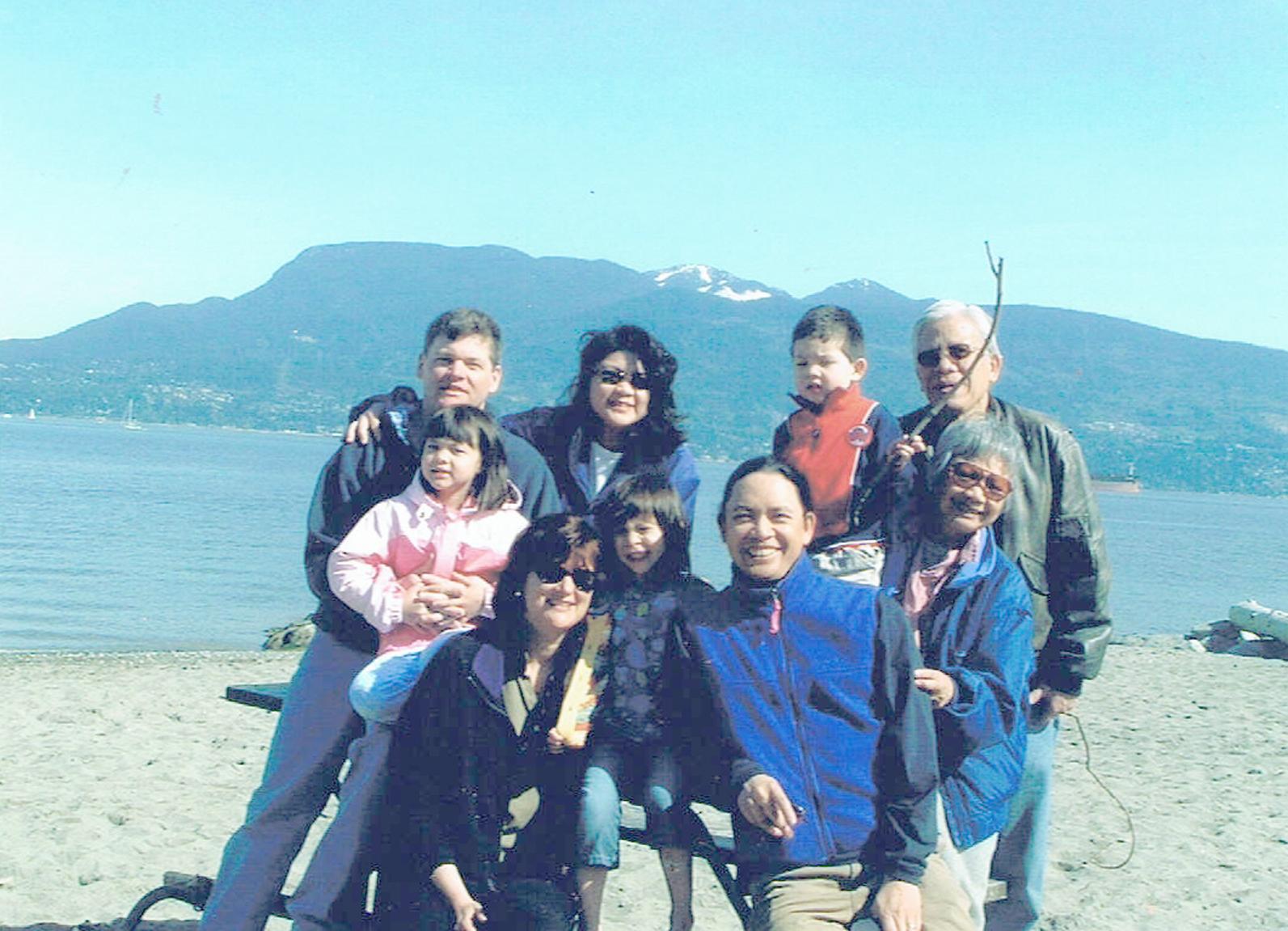29. That is how many times the Laquians have moved their household. Nairobi, Kenya, Santiago, Chile, Suva, Fiji in the South Pacific, Beijing, China and many cities in between—they have been there and have called it home. They made lovely memories in all of them, but had little or no roots. The restless (by choice and by circumstance) can grow weary of impermanence too.
Until Canada.
Why Canada? Why did they stay? What did they find?
“Canada is a just and compassionate country where one can advance through one’s own merits and not on the patronage of politicians,” say Filipino-Canadians Aprodicio (Prod) and Eleanor Laquian.
Globetrotters Prod and Eleanor became Canadian citizens in 1983, and it is where they now lead very quiet lives—talking and arguing about what is happening all over the world, in Canada and the Philippines, reminiscing about where they have been, what they have done, the lives they have touched, the decisions they have made.
A typical day for them consists of listening to CBC Radio at 7 am, eating breakfast and reading the New York Times (plus a dozen newspapers). The afternoon would see them taking a stroll in the Pacific Spirit Regional Park, or listening to music (light classics, guitar music, popular songs of the 1950s, folk songs, Broadway hits, kundimans, harana songs). In the evening, they go out for dinner and then watch Jeopardy or some old movies and then talk to their children and grandchildren by phone or by Skype.
A charmed life.
But it was not always so. Before Canada, before growing roots, they had to (literally) walk through the fire.
They both emerged scathed but strong.
The early years
Poverty could be romantic or skewed when viewed through the lens of time. But Prod remembers it like it was yesterday; it was as if he was not allowing himself to forget.
“I was born in a small barrio in Pampanga and we were dirt poor. My father was a tailor, my mother a seamstress and they had eight children,” says Prod.
On the other side of the social strata was Eleanor. Her father was a lawyer and her mother, a nurse, and this allowed her to enjoy middle class life.
However, the lives of the barrio boy and the city girl were destined to be changed forever by World War II.
Photos or films can never capture the real horrors of war. The stench of fear, grief, gunpowder, betrayal, hunger, death, destruction—the reality of it and the desperation and desolation it brings—can never be fully captured on a film roll.
Prod and Eleanor lived it.
“We nearly starved in Pampanga and Eleanor’s family evacuated to Laguna where they owned land,” Prod says.
It was a terrible time to be alive, but those who lived to see the war’s end saw hope’s promise come true. They viewed life scarred but also with renewed vigor.
Prod recounts, “Our family moved to Manila after the War—we lived in squatter areas.” He and his family lived in a makeshift house called barong-barong, with the toilet a few feet away serving 20 or so families; noise and hunger were a constant, but so were the games and laughter of children who did not know they were poor.
Eleanor’s family had to contend with a tragedy after the War. In 1950, she lost her father. Her mother became the sole breadwinner, and she had to raise five kids. Eleanor and two of her siblings had to work so they can help their mother; they were barely in high school.
The Wall
Araullo High School—and its paper, The Wall—was where Prod and Eleanor’s lives somewhat intersected. Prod was The Wall’s literary editor in 1954, and Eleanor, 2 years his junior, became its editor-in-chief in 1956.
They were both on its roster, which set the stage for a deeper connection, but romance would come much later.
Prod graduated and went to the University of the Philippines to take up Public Administration; Eleanor took up Journalism at Maryknoll College. He then got a Fulbright Scholarship and studied at the Massachusetts Institute of Technology in Boston in 1960; she had an offer to be an international recruit with the United Nations in Bangkok also in 1960 (merely two weeks after graduation).
“In 1961 while I was studying in Boston, I got a letter from our favourite teacher (the faculty adviser of The Wall) asking me if I knew that Eleanor was seriously thinking of marrying an American. She asked me to write to her and I did and we wrote to each other frequently. In 1962, I was invited to attend a conference in Bangkok,” Prod says.
He met Eleanor that Friday, proposed to her on Saturday and they were in church on Sunday, demanding to be married. “[We were] trying to convince her parish priest to marry us then but he made us wait for two weeks because he had to announce the banns,” Prod says with a twinkle in his eye.
They have now been married for 52 years.
“I always remind Prod to smile more often; he looks too serious. He always tells me to be patient and control my temper,” Eleanor says with an answering twinkle in the eye.
Indeed, Prod and Eleanor say they are opposites in many ways. Although they both love writing and traveling, Prod says Eleanor is very neat, well organized and an ardent activist; while he is messy, disorganized and more academic and intellectual.
“I write very fast, she is the toughest editor I have met (she can boil down ten pages of my writing into one page). She likes to use strong and colorful language. We also differ in our approaches to life. Eleanor is a fighter; she is confrontational, demanding and passionate. I am cool, patient, deliberate and accommodating. We agreed, therefore, not to fight but to complement each other’s strengths instead of dwelling on our weaknesses. This decision has made it possible for us to collaborate in writing and editing about 28 books and countless papers and journal articles.
“One important thing we both strongly believed in was social justice for the less fortunate.
“Making money was not a very high priority in our lives. We wanted to earn enough to get our two children and three grandchildren through college and then just have enough left for a comfortable retirement. We have always lived simply. Happily, Eleanor is an excellent financial manager and we have achieved our financial goals,” Prod says.
A nomadic family life
The 1960s was a great time to be young, educated and driven, and Prod and Eleanor were at the pinnacle of their careers. The two were fortunate to work for the Canadian International Development Research Centre (IDRC) and the United Nations (including the UN Population Fund for Prod; and Food and Agriculture Organization, UN Information Centre and World Health Organization for Eleanor).
These high-level jobs took them to many places.
“Eleanor became an expert on packing and moving household stuff. She used to brag that she could start a moving company and do well anytime,” Prod says. “Happily, despite this nomadism, our two kids grew up normal,” he adds.
Their eldest, George, was born in 1964. He is a Safety Specialist at Honeywell and is married to Brenda Jamer of Ottawa. They have a daughter Maya, now 14, and live in Vancouver.
Helen, born in 1966, has an MBA from Boston University and is Deputy Controller of Rodman Insurance Company of Boston. She is married to Daniel Flagg of Boston and they have two children: Elizabeth, 16 and Jack, 13. They live in Boston.
Eleanor says, “We get to see them at least once a year. We are very proud of our three grandchildren—they are all healthy, normal, bright, good looking and excellent both in their studies and in sports.”
Politics
Prod and Eleanor also had their brief (thankfully) brush with snakes from the snake pit through Philippine politics.
Ironically, their entry into it was borne of their desire to return to the Philippines for good. But too many “difficulties” got in the way.
Prod says, “In 1979-81, I was a visiting professor at De la Salle but political differences with some people in the Marcos government forced us to leave. In 1998-2000, I joined the Estrada administration but was fired because of speaking out against corruption.
“Our experience showed us that corruption in the Philippines is systemic and if you do not get involved in it, you will find it difficult to succeed. That is a sad reflection on the situation back home.”
Not being able to set up roots in the Philippines still remains their biggest regret.
In their two books, The Centennial President, an account of Joseph Estrada’s political victory in 1998, and The Erap Tragedy, Tales from the Snake Pit, the couple catalogued their political misadventures in what was an insider/outsider look at what happens behind Malacanang’s closed doors.
Their latest book, Seeking a Better Life Abroad, a Study of Filipinos in Canada, 1957-2007, is equally controversial. The seed for it was planted as early as 1969 when Prod and Eleanor first set foot on Canada (Prod was offered a job in Toronto). They met many Filipino immigrants who told them harrowing stories of racism. These stories enraged Eleanor so much that she decided to write about Filipino immigration to Canada for her master’s thesis at UP’s School of Public Administration (she got her MA degree in 1973, graduating in absentia). These started her on this book and her crusade to champion the rights of the marginalized in Canada.
Eleanor says, “To suffer in silence is to punish yourself and the victim, not the wrong doer. Always strive to make injustice visible because that is the best way to correct it.”
Interestingly, says Prod, the books that have earned the most royalties were two cookbooks written by Eleanor while she was learning how to cook in Canada: Filipino Cooking Here and Abroad and Filipino Cooking and Entertaining Here and Abroad both published by National Book Store in Manila.
Word to the wise
People go to Prod and Eleanor to seek their wisdom and for the simple honour of being in their presence. Their depth of understanding, strength and respect for their kababayans have made them veritable pillars of the community. Nothing happens without them knowing; or without them participating, except that of late, they have chosen to be instead at the background. Here is their counsel.
To those aspiring to enter Canadian politics
Make sure you enjoy the rough and tumble of politics. A political career is not for the introverted or the blushing rose. Name recognition is the name of the game—pursue activities that will get your name in the limelight. At the same time, do not appear too ambitious as this turns people off. If possible, when throwing your hat in the political ring, make sure you are “drafted” by a group (preferably a civic one dedicated to the common good) instead of brashly volunteering yourself. Join a group or movement early and move up, very few politicians become stars right away (unless you are part of a political family already). Network like your life depended on it, politics, as they say, is addition. Most important of all, keep clean—politics is very rewarding but you can ruin your name and reputation very easily.
For community builders (or those who want to be community builders)
Identify a cause or a group you really want to help. Join early. People appreciate the enthusiasm of volunteers. Be sure you have the talents and resources to be really of help. Do not go into community building to achieve an ambition (like politics), people can readily see what a person’s true motivations are. Be ready to devote your time, talents and resources. If possible, involve your spouse and family members in your community building efforts, otherwise, there will be conflicts. Most important of all, enjoy the community involvement and the experience.
[Also] remember that there are many ways to skin a cat. Your ideas may not be the only solution to a problem nor is it the best one. Have an open mind, listen carefully and evaluate other ideas objectively before passing judgment on other people’s ideas.
For those who want a career in the academe
Get a Ph.D., an MA is not good enough anymore. Write and publish articles and books because an academic career involves publish or perish. Do original research based on gathering new data, not library research. Network, attend international conferences and deliver papers and meet with the luminaries in the academic world. Do not hesitate to write to other academics doing great work, you will be surprised how many of them are willing to help others. Get into a field you are really interested in and excited about—you cannot force yourself to be outstanding if your heart is not in it. Above all, be honest, do not fudge research data or say inaccurate things in your lectures. Lies will always come around and bite you.
For those who want a career in the music and the arts
Let us face it, you either have true native talent or you don’t. Education and training can only help so much. Even a Michelangelo cannot turn bad marble into a great statue. In this day and age, an excellent education is needed, even in the case of truly talented people. Once launched, however, a career in music and the arts requires as much exposure as possible. Again, networking is necessary. Link up with already known artists and performers. Serve your apprenticeship. If possible, pursue a special area, not just following or imitating others. And, yes, be always ready for that lucky break so that when it comes, you will be ready.
For spouses
The key is shared interests—if both are not interested or passionately involved in an endeavour, there will be problems. It is important to grow and develop interests and talents together. The worst things happen when one spouse gets ahead and the other is left behind. Each individual must know his or her strengths and weaknesses and how such strengths and weaknesses are developed in a complementary way. It is a trite observation but communication is absolutely necessary. If a couple cannot discuss things, argue and fight and try to arrive at a resolution of differences, that marriage will not work. Love and respect for each other are the essential elements of a good marriage. And, oh yes, the welfare of the children and grandchildren is a great common bond that can transcend individual differences.
Communication is vital to a marriage’s survival.
For husband and wife in challenging and exciting paths, always remember that you are each other’s keeper. Always support each other and always appear united in public even if you disagree with each other in private.
Prod and Eleanor Laquian were honoured with the Community Builder Award by the Vancouver Asian Heritage Month Society (VAHMS) during explorASIAN 2014 held on June 3, 2014. The books of Prod and Eleanor mentioned in this interview will be on sale at Again – Treasures Revisited located at 1868 West Broadway in Vancouver on June 27, 28 and 29 from 2-6pm (phone 604-730-0222). All proceeds will go to the CARE-NET Project of the Vancouver Committee for Domestic Workers and Caregivers Rights (CDWCR).
– – –
Do you know an outstanding Filipino who deserves recognition? Nominate the next “FIlipino-Canadian In Focus” — click here.
